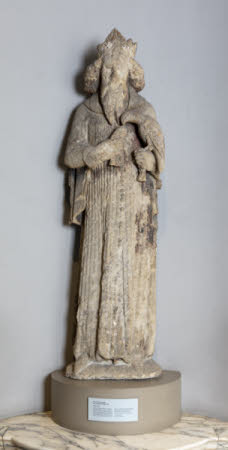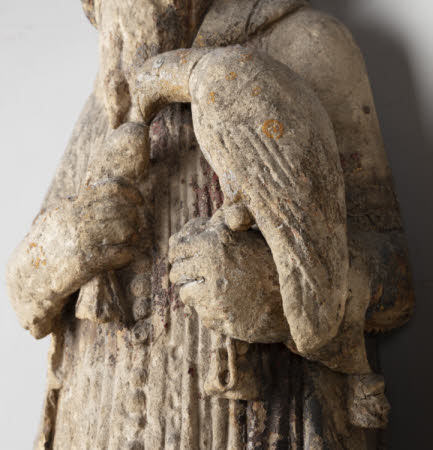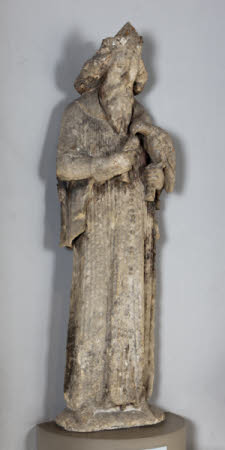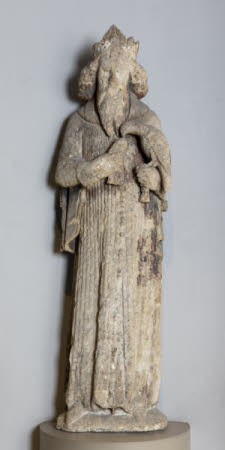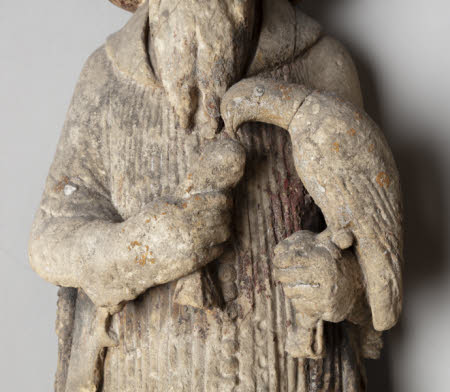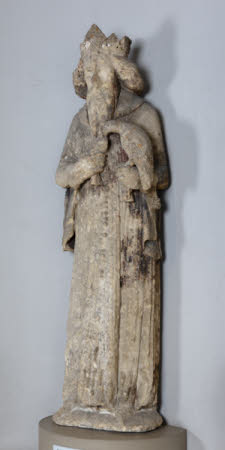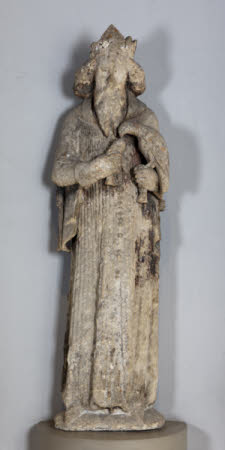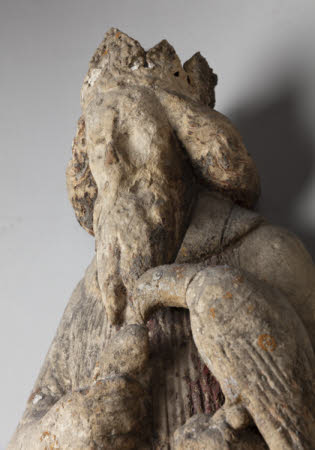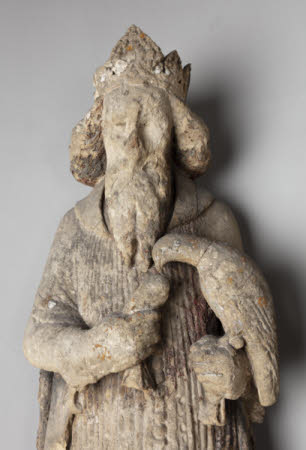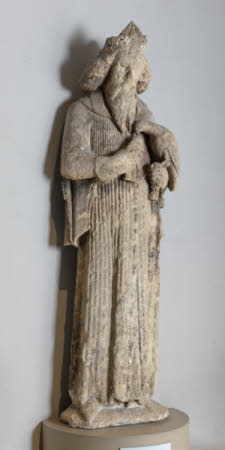Bristol High Cross
British (English) School
Category
Art / Sculpture
Date
1400 - 1500
Materials
Limestone
Measurements
1727 x 508 x 305 mm
Order this imageCollection
Stourhead, Wiltshire
NT 562952.5
Summary
Sculpture, limestone, King John (facing east); holding a bird, possibly a falcon. The four standing figures in the lower tier were too fragile to be repaired for reinstatement during the repairs of 1979-1981 and are loaned to the Victoria and Albert, with carved stone replicas in their place. The High Cross originally stood at the junction of High Street, Broad Street, Wine Street and Corn Street, the four principal thoroughfares of Bristol. There were niches containing the statues of Kings John, Henry III, Edward III and Edward IV. All these had contributed to Bristol's expansion and trade by conferring important charters. The whole Cross was originally gilded and coloured. In 1633 the Cross was repaired and altered to include the figures of Henry VI, Elizabeth, James I and Charles I, who had further endowed privileges on the city. The Cross was later painted vermilion and blue and gold. In later years it was viewed as an obstruction in the busy streets of Bristol. In 1733 the deputy chamberlain Mr Vaughan, who lived at the corner of High and Wine Street, claimed his life and house were in danger from it every time the wind blew. The 'progressive' magistrates ordered that the Cross be put away in the Guidhall and later re-erected on College Green. However, in 1763 it was declared a nuisance by locals and as it stood on land owned by the Cathedral it was deposited in a corner. In 1768 it was given away by the Dean of Bristol to his friend Henry Hoare of Stourhead, to use as an estate ornament.
Provenance
The Bristol Cross originally stood at the junction of High St and Broad St, Bristol and was removed as an obstruction in 1733, rebuilt on College Green three years later and finally dismantled in 1762. The pieces lay neglected in a corner of the cathedral until rescued by Henry Hoare who had them transported to Stourhead in six wagons in October 1764.
Credit line
On loan from National Trust, Stourhead, Bristol Cross.
Makers and roles
British (English) School, sculptor
